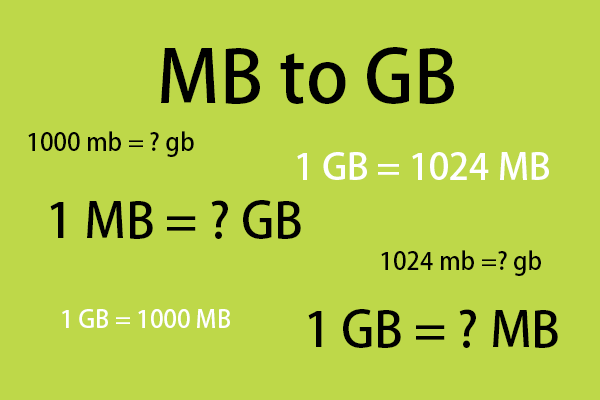As someone who’s spent countless hours tinkering with computers, managing storage devices, and helping friends and family with their tech troubles, I’ve come to realize that understanding data storage units is both an art and a science.
Today, I want to take you on a journey through the fascinating world of bytes, kilobytes, and gigabytes, all while answering the burning question: How many GB is 16385520KB?
The Basics: Bytes, Kilobytes, and Gigabytes
Before we dive into the nitty-gritty of our calculation, let’s start with the basics. Understanding these fundamental units is crucial for anyone dealing with digital storage, whether you’re a tech enthusiast or just trying to figure out if you have enough space for your vacation photos.
Bytes: The Building Blocks
At the most basic level, we have bytes. A byte is a unit of digital information that typically consists of eight bits. In the early days of computing, a single character of text was often represented by one byte.
While that’s still true for many basic characters, things have gotten a bit more complex with the advent of Unicode and other encoding standards.
Kilobytes (KB): Stepping Up
Next, we have kilobytes. Now, here’s where things can get a bit confusing. In the world of computing, we often use binary prefixes, which means:
1 KB = 1,024 bytes
Why 1,024 and not 1,000? It’s because computers work in base-2 (binary), and 1,024 is 2^10. This can lead to some confusion when comparing computer storage to other measurements, but it’s essential to keep in mind for our calculations.
Megabytes (MB): Getting Bigger
Moving up the scale, we have megabytes:
1 MB = 1,024 KB = 1,048,576 bytes
Again, we’re using the binary prefix, so it’s 1,024 KB rather than 1,000 KB.
Gigabytes (GB): Now We’re Talking
Finally, we reach gigabytes, which is the unit we’re aiming for in our conversion:
1 GB = 1,024 MB = 1,048,576 KB = 1,073,741,824 bytes
This is where things start to get really interesting, and where our specific question comes into play.
The Big Question: Converting 16385520KB to GB
Now that we’ve laid the groundwork, let’s tackle our main question: How many GB is 16385520KB?
To solve this, we need to divide 16385520 by the number of KB in a GB:
16385520 KB ÷ 1,048,576 KB/GB = 15.625 GB
So, there you have it! 16385520KB is equal to 15.625 GB.
Why These Conversions Matter
You might be wondering, “Why does this matter? Can’t I just let my computer handle these conversions?” And you’d be right – most of the time, our devices do handle these calculations seamlessly. But understanding these units and how to convert between them can be incredibly useful in real-world scenarios.
Personal Experience: The Case of the Disappearing Storage
I remember a time when I bought a new 1TB hard drive for my computer. I was excited about all the space I’d have for my projects, games, and media files. But when I installed it, Windows reported it as only 931GB available. I was confused and, admittedly, a bit frustrated. Where did those 69GB go?
This discrepancy led me down a rabbit hole of learning about how storage is calculated and marketed. It turns out, hard drive manufacturers often use decimal prefixes (1000 bytes = 1 KB) while operating systems use binary prefixes (1024 bytes = 1 KB). This difference, compounded over billions of bytes, leads to the apparent “loss” of storage space.
Understanding these conversions helped me explain the situation to countless friends and family members who encountered similar “missing space” issues with their new devices.
Practical Applications: When KB to GB Conversions Matter
Now that we know how to convert 16385520KB to GB, let’s explore some real-world scenarios where this knowledge comes in handy.
1. Managing Cloud Storage
Many cloud storage providers allocate space in gigabytes, but file sizes are often displayed in kilobytes or megabytes. Knowing how to convert between these units can help you manage your cloud storage more effectively.
For example, if you have a 15GB free tier on a cloud service and you’re trying to upload a collection of files totaling 16385520KB, you’d know immediately that it would fit within your free allocation, as it’s just about 15.625GB.
2. Choosing the Right SD Card for Your Camera
If you’re into photography, you’ve probably encountered storage sizes in various units. Your camera might report file sizes in MB, while SD cards are typically marketed in GB.
Let’s say you’re going on a trip and you know your photos average around 16MB each. If you want to store about 1000 photos, you’d need approximately 16,000MB or 16,000,000KB of storage. Converting this to GB (about 15.26GB) helps you decide that a 16GB SD card would be cutting it close, and you’d be better off with a 32GB card.
3. Software Development and File Size Limits
As a developer, I’ve encountered situations where understanding these conversions was crucial. Many systems have file size limits expressed in bytes or kilobytes, but it’s often easier to conceptualize larger files in megabytes or gigabytes.
For instance, knowing that 16385520KB is about 15.625GB can be helpful when working with large datasets or media files, ensuring you stay within system limits or optimize storage usage in your applications.
The Bigger Picture: Data Storage Trends and Challenges
As we dive deeper into the world of data storage, it’s fascinating to consider how our perception of storage sizes has evolved over time. What seemed like an enormous amount of storage a decade ago is now considered modest by today’s standards.
The Evolution of Storage Needs
When I first started working with computers, a 1GB hard drive was considered massive. Today, we carry smartphones with 128GB or 256GB of storage in our pockets. This exponential growth in storage capacity has been driven by several factors:
- Higher resolution photos and videos
- Increasingly complex software and games
- The rise of big data and machine learning
- The need to store and process large amounts of scientific and business data
As our storage needs have grown, so has the importance of understanding and managing these larger units of data.
The Challenge of Data Representation
One interesting challenge that arises from these large numbers is how we represent and comprehend them. While 16385520KB is a precise measurement, it’s not particularly intuitive for most people. Converting it to 15.625GB makes it more relatable, but even then, it can be hard to conceptualize.
This is why we often see storage represented in more human-friendly terms:
- “Enough for 10,000 high-resolution photos”
- “Store up to 500 hours of HD video”
- “Hold your entire music library and then some”
These representations help us understand storage capacity in terms of real-world usage, rather than abstract numbers.
Common Misconceptions and Pitfalls
Throughout my years of working with technology, I’ve encountered several common misconceptions about data storage units. Let’s clear up a few of these:
1. The Kilo- Prefix Confusion
Many people assume that kilo- always means 1000, as it does in the metric system. However, in computing, a kilobyte is 1024 bytes, not 1000 bytes. This discrepancy can lead to confusion, especially when dealing with large amounts of data.
2. GB vs. GiB
To address the ambiguity between decimal and binary prefixes, the International Electrotechnical Commission (IEC) introduced new units: gibibyte (GiB), mebibyte (MiB), kibibyte (KiB), etc. These explicitly use the binary prefix (1 GiB = 1,073,741,824 bytes). However, these units haven’t been widely adopted in everyday use, leading to ongoing confusion.
3. Advertised vs. Actual Storage Capacity
As I mentioned earlier with my 1TB hard drive story, the storage capacity advertised by manufacturers often doesn’t match what you see when you install the drive. This isn’t a manufacturing defect or false advertising, but rather a result of the different ways of calculating storage size.
Looking to the Future: Beyond Gigabytes
As we wrap up our exploration of converting 16385520KB to GB, it’s worth considering what the future holds for data storage. We’re already seeing terms like terabytes (TB) and petabytes (PB) becoming more common.
The Rise of Terabytes and Beyond
1 TB = 1,024 GB ≈ 1,099,511,627,776 bytes
To put this in perspective, our original 16385520KB is about 0.015TB. As we move towards handling larger and larger datasets, understanding these higher units becomes increasingly important.
Emerging Storage Technologies
The future of storage isn’t just about bigger numbers; it’s also about new technologies. Some exciting developments include:
- Solid State Drives (SSDs) becoming more affordable and higher capacity
- Advancements in cloud storage and distributed systems
- Quantum storage solutions on the horizon
These technologies will not only increase our storage capacities but also change how we think about and interact with stored data.
Practical Tips for Managing Your Data
Now that we’ve explored the intricacies of data storage units, here are some practical tips to help you manage your data more effectively:
- Regularly audit your storage: Understand what’s taking up space and delete unnecessary files.
- Use cloud storage wisely: Take advantage of cloud services for backup and accessibility, but be aware of privacy concerns.
- Invest in external storage: For large media collections or backups, external hard drives or NAS (Network Attached Storage) systems can be invaluable.
- Learn file compression: Understanding how to compress files can help you make the most of your available storage.
- Stay informed about storage technologies: Keeping up with advancements can help you make better decisions when upgrading your storage solutions.
Conclusion:
As we’ve seen, answering the question “How many GB is 16385520KB?” involves more than just a simple calculation. It opens up a world of understanding about how our digital data is stored, measured, and managed.
From the basics of bytes and kilobytes to the complexities of marketing storage devices, every piece of this puzzle plays a crucial role in our digital lives. Whether you’re a tech enthusiast, a professional in the IT field, or simply someone trying to figure out if you have enough space for your files, understanding these concepts can empower you to make better decisions and troubleshoot issues more effectively.
Remember, 16385520KB may seem like just a number, but it represents about 15.625GB of potential – potential for creativity, productivity, and innovation. As we continue to push the boundaries of what’s possible with technology, these numbers will only get bigger, and our understanding of them will become even more crucial.
So the next time you’re faced with a storage-related question or decision, take a moment to think about the units involved. You might just find that a little bit of knowledge goes a long way in navigating the ever-expanding digital universe.







